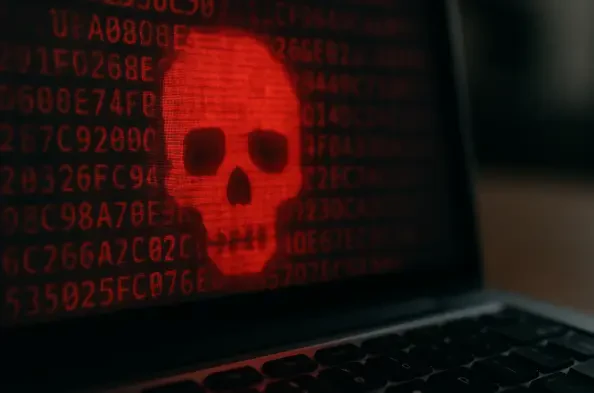In the shadow of advancing technology, even municipal systems can fall prey to concealed digital threats. Such was the case with Glasgow City Council when a cyber attack emerged on June 19, unsettling the organization’s digital landscape. The incident underscored a global concern as it jeopardized numerous council services. The perpetrators, employing subtle tactics, capitalized on vulnerabilities within the third-party infrastructure managing the council’s ICT. This confrontation shines a light on the broader narrative of cybersecurity’s evolving battle, presenting lessons that extend well beyond the confines of Glasgow’s borders.
Glasgow City Council’s Cyber Security Response
Immediate Isolation and Containment
The immediate course of action once the cyber attack surfaced was crucial, with Glasgow City Council moving promptly to isolate compromised servers. This decision wasn’t made lightly, considering the scale of services potentially affected. The isolation, although causing widespread service disruptions, was an essential strategy to ensure the infection did not spread further within the council’s network. The decision to act swiftly demonstrates a proactive approach to crisis management and the understanding that immediate containment can mitigate larger, more devastating consequences.
The forensic analysis initially sparked concern, given the numerous services reliant on CGI’s servers, including the planning portal, financial transactions, and vital records. However, as more information came to light, reassurances arrived that data integrity had not been compromised to the anticipated extent. Significantly, no evidence suggested successful data theft or encryption—an outcome that perhaps speaks to the rapid containment efforts. The removal of the threat, confirmed by high-confidence expert assessments, allowed the council to communicate transparently to the public, maintaining trust amid the disruptions.
Restoring Services and Interim Solutions
Recovery efforts were coordinated with precision, involving the gradual reactivation of services while ensuring security controls were adequately reinforced. By mid-August, it was anticipated that most applications and services would be restored, facilitating normalcy for residents. During the recovery phase, temporary solutions bridged the gap for essential services, minimizing public inconvenience. Residents remained informed about the expected timeframes for complete resumption, fostering a sense of collaboration between the council and the community.
This entire incident served as a crucial lesson in resilience, illustrating the necessity for effective backup and contingency planning in public sector IT infrastructure. Continuous monitoring remained a priority throughout the process, as the ever-present risk of cyber threats necessitated vigilance. The council’s response team focused on not just restoration but also on strengthening defenses to thwart future attacks. This proactive stance involved a scrupulous assessment of third-party collaborations, emphasizing the shared responsibility in safeguarding public data integrity.
The Opportunistic Nature of the Attack
No Direct Targeting of Council Data
Expert analysis revealed that this attack on Glasgow City Council was not a deliberate attempt to exploit the council but rather an opportunistic foray against a third-party supplier. This distinction is crucial, as it illustrates a broader trend where attackers seek vulnerabilities in less secured nodes linked to larger networks. Such approaches exploit indirect paths to create widespread disruption. The council’s subsequent actions in severing vulnerable connections highlight a growing awareness that protecting public data requires not just inward-looking security measures but also the careful vetting of external partnerships.
The nature of these breaches also emphasizes the pressing need for robust security protocols, not just within council operations, but extending to all interconnected entities. The significant takeaway from this incident should focus not only on rapid response and isolation but also on strengthening cooperative cyber defenses across industries. Glasgow’s experience reflects the microcosm of an extensive digital ecosystem where no entity operates in isolation, stressing the importance of comprehensive vigilance.
Learning from the Incident
Looking forward, the insights gained from this cyber attack extend beyond immediate recovery actions toward establishing a long-term strategy for cybersecurity resilience. It uncovers the necessity to maintain current awareness of potential vulnerabilities both within direct ecosystems and among affiliated partners. Collaborative security initiatives are imperative, encouraging public sector entities to adopt an industry-wide approach in sharing threat intelligence and cybersecurity best practices.
Despite the severity of the incident, Glasgow City Council has effectively leveraged the experience to better prepare for future challenges. They are not alone; this occurrence resonates with councils worldwide as a cautionary tale that urges continuous evaluation and enhancement of digital defenses. As technological advancements persist, so too does the sophistication of cyber threats, compelling institutions to adopt adaptive measures and evolve their security strategies accordingly.
Reflections on a Cyber Crisis
In today’s technology-driven world, even city councils can become unsuspecting victims of sophisticated digital threats. Glasgow City Council faced just such a scenario on June 19, when a cyber attack disrupted its digital framework. This incident highlighted a troubling global trend of increasingly audacious cyber threats, as it compromised numerous services provided by the council. The attackers exploited weaknesses within the third-party infrastructure responsible for managing the council’s information and communication technology (ICT), using deceptive methods to their advantage. This situation underscores the ever-evolving challenges of cybersecurity and emphasizes how critical it is for organizations worldwide to safeguard their digital operations. It serves as a cautionary tale, reminding us all of the importance of vigilance and robust security measures in protecting against such threats. The lessons learned extend far beyond Glasgow, offering insights into the universal battle against cyber vulnerabilities.






